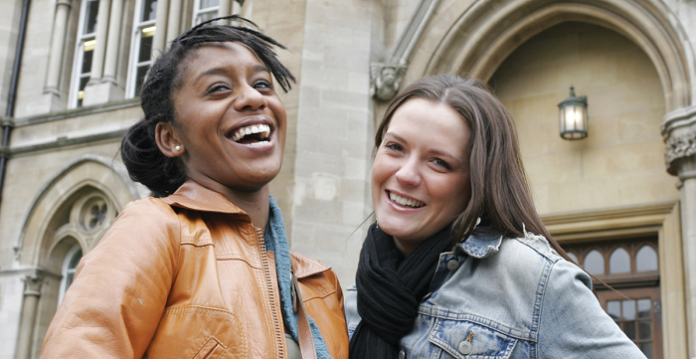Meeting students’ expectations is becoming more important for universities. Clare Foyle and Jean Mutton explore what institutions are doing to engage students in influencing change projects in learning, teaching and professional services.
There are many reasons why higher education institutions want to engage with their students. Recent government policy changes have further reinforced the marketisation of the sector and the satisfaction of students remains a key driver, particularly with the inclusion of National Student Survey measures in the future Teaching Excellence Framework.
For these reasons, it makes sense to try to understand how best to engage students to choose the right course, so that they get the most from their studies and graduate with a good degree.
Furthermore, expectations continue to change, with a generation of students coming into HE who are more IT literate, who’ve grown up with social media and internet shopping and have different expectations of technology than their predecessors.
There are many ways in which institutions have begun to engage students in change projects
So, what’s happening out there? There are many ways in which institutions have begun to engage students in change projects, in the design of their course and in other areas of learning and teaching that go beyond focus groups and surveys.
Students as co-designers
Pioneers such as Mike Neary at the University of Lincoln have demonstrated the benefits of working with students as co-designers of their learning experience. The Students as Producers project helped to establish a framework for staff to engage with students on curriculum design and development and is now fully embedded into the university.
Across the sector, Jisc have been working with HE and FE institutions to establish a movement to engage students as digital entrepreneurs and as champions to embed the use of online services for teaching and learning. This can be seen in Jisc’s students as change agents project where students work in partnership with staff in technology related change projects. These partnerships worked on projects that included improving the student experience and organising an event on digital innovation.
The increasing importance placed on student engagement is reflected by the establishment of networks for staff, associated practitioners and students involved in this work. The RAISE network (Researching, Advancing & Inspiring Student Engagement) has as one of its special interest groups Students as Partners, chaired by Colin Bryson of Newcastle University. One of its aims is “to support and facilitate the concepts, culture and practice of students and staff working in partnership”.
‘Back office’ services
While working with students as partners and as co-producers is now gaining recognition as good practice in academia, engaging students in projects to improve systems, policies and services is less common.
there may be limited direct contact with staff delivering invisible ‘back office’ functions
Staff working on the non-academic side of the sector run myriad systems and processes that impact on students, right across the student lifecycle, from prospect to alumnus, however there may be limited direct contact with staff delivering invisible ‘back office’ functions. Consequently, there is little engagement with students themselves in the design and review of these services.
So how should we get students engaged in this aspect of their student journey? What are the challenges? And how can the professional services in HE harness insight from students to improve their experience?
If this has sparked your interest, please get in touch with either of the authors as we are testing the water to see if there is any will to establish a sector dialogue on this topic.
Clare Foyle is the head of institutional research, De Montfort University and Jean Mutton is director of the consultancy Go Process Design.








